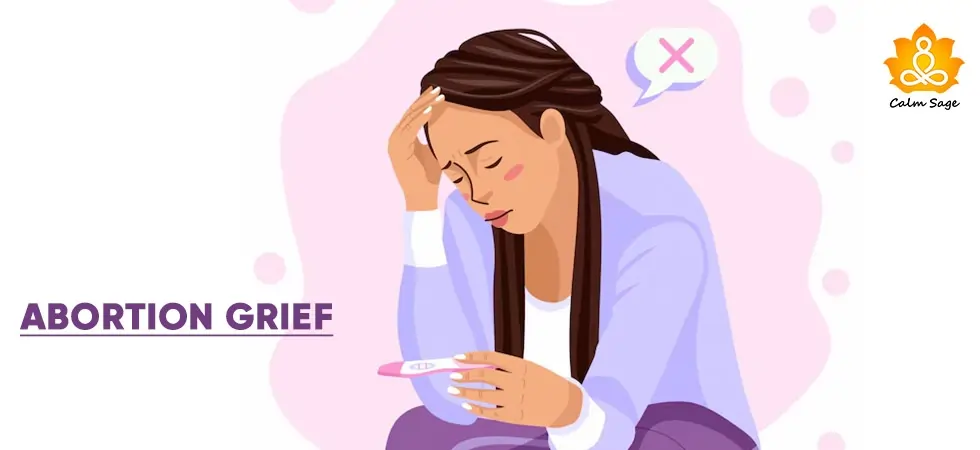Can Vitamin And Nutrient Deficiencies Cause Depression? Here’s The Truth!

Be frank; have you had time today to relax and laugh? Or have you been busy, fueling your cortisol increasingly these days? I’ll say that we spend more time these days being stressed. It’s not uncommon for us to be stressed and experience symptoms of depression, now and then.
It’s like these feelings and concerns have become a constant companion. While several factors can cause mental health issues, there’s a common factor that we fail to watch out for; nutrition. We might not realize it now, but what we eat and how we consume our food can impact our moods.
I know! It’s hard to believe that food can be one of the sources of our stress and depression, but research and studies over the years have concluded that factors of depression aren’t always psychological.
In this article, we’re taking a look at the link between nutrient and vitamin deficiencies and depression. Let’s see which vitamin and nutrient deficiencies can cause depression and what you can do about it.
The Link Between Nutrient Deficiencies And Depression
Studies over the years have highlighted the complex relationship between vitamin and nutrient deficiencies and mental health. The brain, our most complex organ, needs a balance of vitamins, minerals, and other nutrients to function at its best. When it doesn’t receive this balance of nutrients and vitamins, it can manifest as a mental health issue, with depression being the most prominent one.
Depression can cause symptoms such as low mood, low energy, persistent sadness, and hopelessness. These symptoms can be persistent and can interfere with a person’s daily life. Depression is one of the most commonly diagnosed mental health disorders and various factors can contribute to its development, including nutrition.
Researchers have worked diligently to explore the connection between nutrition and mental health. One study found an association between low levels of nutrients and an increased risk of developing depression. This points to the need to consider nutrition as a major factor in understanding depression.
While depression caused by nutrient and vitamin deficiencies can be rare, these deficiencies can cause symptoms of depression to worsen, especially if you’re already living with a condition that might alter your nutrient absorption. If you’re experiencing depression symptoms, then it’s important to look for vitamin and nutrient deficiencies as potential factors, if not instigators.
What Causes Nutrient and Vitamin Deficiencies?
Knowing what causes your deficiencies might help you figure out what to do to prevent such deficiencies. Poor dietary choices, eating patterns, and even certain medical conditions can all contribute to nutrient and vitamin deficiencies. A study, conducted by the American Journal of Clinical Nutrition, highlighted the prevalence of inadequate nutrient consumption.
Moreover, the absorption of nutrients can be influenced by factors such as gastrointestinal disorders, medications, and age. A research study, published in the Journal of Aging and Health, found that older adults are more susceptible to vitamin B12 deficiency — one of the vitamin deficiencies that can negatively influence your mental health.
6 Vitamin and Nutrient Deficiencies Cause Depression?
1. Vitamin D
Studies have linked low levels of vitamin D to an increase in depression. Our body produces vitamin D through sunlight and when it doesn’t get sufficient exposure to sunlight, it can cause vitamin D deficiency, which can, in turn, cause or exacerbate the symptoms of depression and even anxiety. In older studies, it was highlighted that low serotonin levels can also cause depression.
2. Omega-3 Fatty Acids
Another vitamin deficiency that has been linked with depression is Omega-3 fatty acids. Deficiency of Omega-3 fatty acids can cause a decline in brain health and can also affect your mood. It is believed that adding fatty fish, flaxseeds, and walnuts to your diet can help with this deficiency and help improve your brain health.
3. Vitamin B12
Vitamin B plays a crucial role in our health, and its deficiency can impact our mood and even cause depressive symptoms. In a recent study, it was found that people who had vitamin B12 deficiency had low blood levels and were at a greater risk of developing depression. You can find vitamin B12 in meat-based meals and foods such as liver, kidneys, beef, and clams.
4. Vitamin B9
Vitamin B9 is another nutrient whose deficiency can cause cognitive impairment and depressive moods. This vitamin is involved in our biological functions as is naturally found in food. Taking vitamin B9 supplements can help people who are struggling with treatment-resistant depression. This vitamin can be found in leafy greens, beans, citrus fruits, and grains.
5. Iron
Another essential nutrient is iron; if you have iron deficiency, it can cause fatigue and depression. Iron deficiency is more common in women than men, with almost 57% of women being iron deficient. In many cases, iron deficiency can cause anemia. Studies also show that people with iron deficiency are more likely to be diagnosed with depression. Iron can be found in foods such as red meat, fish, and poultry.
6. Zinc
Zinc is involved in our physiological health, and zinc deficiency can be linked to depression as well. Zinc helps in our cell growth and metabolism. Having balanced zinc levels can be good for the brain. Studies have shown that zinc deficiency can be a factor in causing depression. Zinc supplements with medications can be good for treating depression. You can find zinc in foods such as nuts, seeds, and legumes.
What to Do Next?
Treating nutrient deficiencies needs more than just taking supplements. You need to talk to your healthcare provider to understand how much of these nutrients you truly need and to get an accurate diagnosis. Your doctor can suggest dietary changes, supplements, and lifestyle changes based on your needs.
1. Talk to a Professional:
Before you take nutritional supplements on your own, it is strongly recommended that you speak to a professional to get an assessment of your nutritional status and find out the deficiencies you have. Only with an accurate assessment can you take appropriate supplements.
2. Eat a Well-Balanced Diet:
Try to eat a well-balanced diet rich in fruits, vegetables, whole grains, proteins, and healthy fats to get a steady consumption of all essential nutrients. You can create a meal plan as well based on your dietary needs to ensure a balanced diet.
3. Take Supplements:
In addition to your diet, you might need to take supplements to address specific nutrient deficiencies that can’t be done naturally. However, before you take any supplements, it’s important to consult with a healthcare professional, in case of allergies and more.
4. Lifestyle Changes:
Just making changes to your diet and taking supplements can’t always ensure that you’ll feel better. You need to make lifestyle changes as well such as doing regular exercise, getting proper sleep, and managing stress levels. Doing these can help you reduce stress hormones and increase the production of serotonin and dopamine, the happy hormones.
Wrapping Up…
There is a link between nutrition and depression, which we often overlook. It’s important to understand the role nutrients (and their deficiencies) play in shaping our health and well-being. Treating nutrient and vitamin deficiencies can help you improve not only your physical but mental health as well.
The path to mental wellness might seem challenging, but when you know what to do to fuel your brain and body, it might become smoother than you think. I hope understanding the link between vitamin and nutrient deficiencies and depression can help you make better choices that promote health and happiness.
Like this article? Let us know what you think about the link between nutrient deficiencies and depression in the comments below.
Take Care!




















